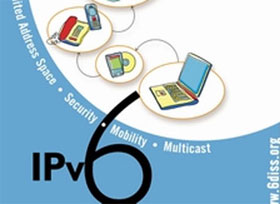Switching to IPv6 is not easy
Switching networks to IPv6 is really a tiring problem because even your network hardware is not ready.
Recently we have heard a lot about the need to switch to the IPv6 address system in the face of the exhaustion of IPv4 addresses being used. And whether you like it or not, it is almost time for you to move to IPv6 for our mobile devices, corporate networks and families.
That will bring hardship for network administrators. However, in a recent article on ITWorld, the author - who has worked a lot with IPv6 - addresses another, more ominous problem. That is, there are many network devices that cannot currently manage IPv6.
 According to the author, suppliers may say that their device supports IPv6, but the truth is another matter. He did not name them because he discovered this in the process of upgrading his network infrastructure to IPv6, not in a lab. 'If I have access to a real lab, I can spend the time needed to secure my conclusions and have accurate explanations about what's going on,' he said.
According to the author, suppliers may say that their device supports IPv6, but the truth is another matter. He did not name them because he discovered this in the process of upgrading his network infrastructure to IPv6, not in a lab. 'If I have access to a real lab, I can spend the time needed to secure my conclusions and have accurate explanations about what's going on,' he said.
'What I can say is that there are many incompatible network hardware. In the process of using both SOHO and small office devices (small office and home), I found that even devices from the same provider sometimes can't connect using IPv6 with together. This is not good , 'the author asserted.
The latest operating systems, such as Windows 7, Server 2008 R2 and Linux distributions support IPv6 well. But the problem lies in the hardware, which is routers, switches (switches).
You may think that there is no need to worry about IPv6. But do you still have to worry about your Internet address? The problem is that we are actually running out of IP addresses. Currently we only have 6% of IPv4 addresses. That means that when your business needs to add some IP addresses in early 2012, you'll have to pay them a lot or use IPv6 addresses.
Switching networks to IPv6 is really a tiring problem. The author said that many times that companies need to start working on IPv6 today, it is necessary to start testing the compatibility of network devices with IPv6. 'You will not be able to buy LAN hardware and make sure it will work right in your office,' the author said. 'So, reiterate, making your network switch now before an error causes a branch office to lose Internet connection.'